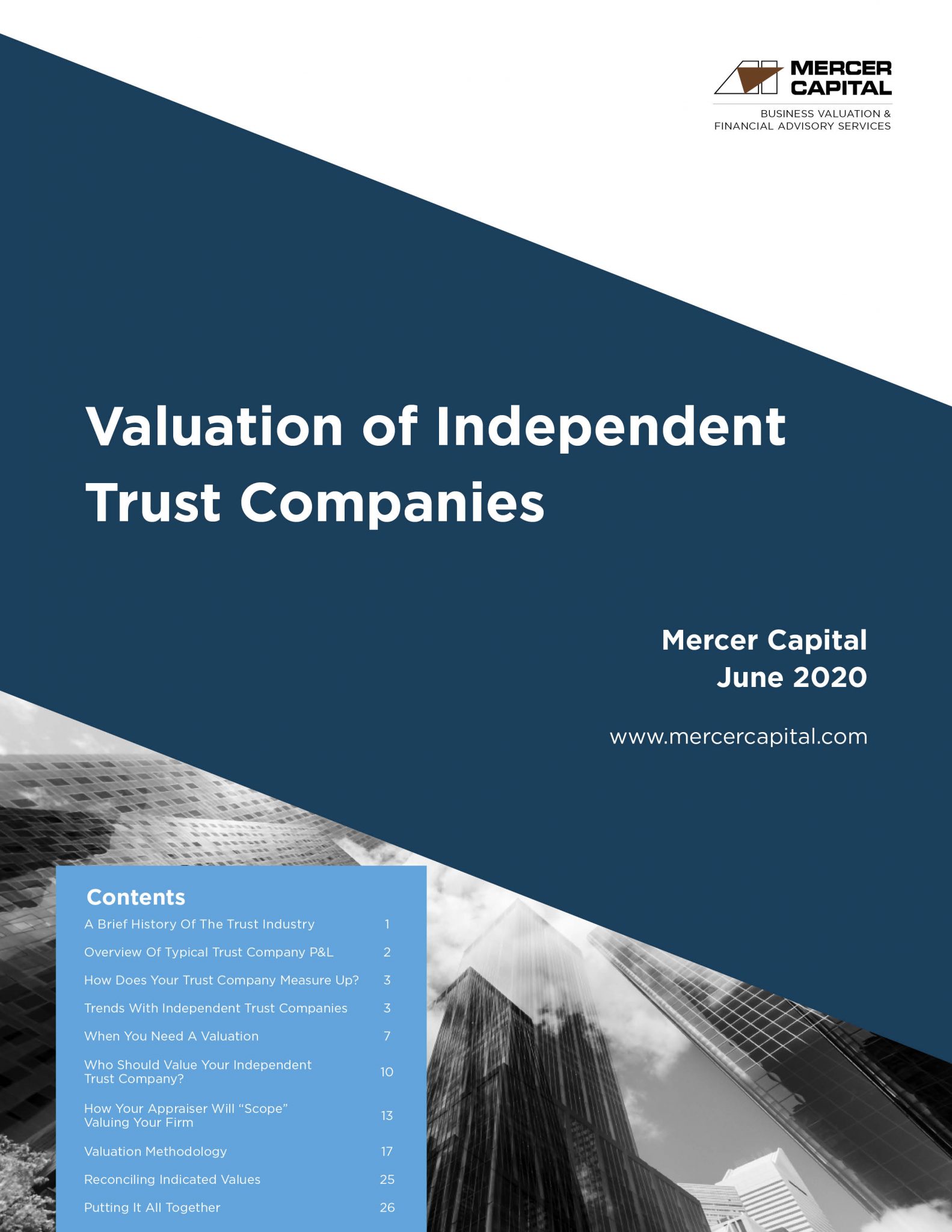Whitepaper Release: Valuing Independent Trust Companies
If you’ve never had your trust company valued, chances are that one day you will. The circumstances giving rise to this valuation might be voluntary (such as a planned buyout of a retiring partner) or involuntary (such as a death, divorce, or partner dispute). When events like these occur, the topic of your firm’s valuation can quickly shift from an afterthought to something of great consequence.
The topic of valuation is of particular importance to owners of independent trust companies given the typical independent trust company’s ownership structure, where a majority interest is held by the firm’s founders or senior partners, with younger, more junior partners holding smaller stakes. Such an ownership dynamic—with its (relatively) frequent arms-length transactions and potential for ownership disputes—heightens the need to understand the value of your ownership interest. In our experience working with independent trust companies on valuation issues, the need for a valuation is typically driven by one of three reasons: shareholder agreements, transactions, or litigation.
The situation giving rise to the need for a valuation could be one of the most important events of your professional career. Familiarity with the various contexts in which your firm might be valued and with the valuation process and methodology itself can be advantageous when the situation arises. To this end, we’ve prepared a whitepaper on the topic of valuing interests in independent trust companies.
In the whitepaper, we describe the situations that may lead to a valuation of your firm, provide an overview of what to expect during the valuation engagement, introduce some of the key valuation parameters that define the context in which a firm is valued, and describe the valuation methods and approaches typically used to value independent trust companies. If you own an interest in an independent trust company, we encourage you to take a look. While the value of your firm may not be top of mind today, chances are one day it will be. Our hope is that this whitepaper will provide you with a leg up towards understanding the valuation process and results, and further that it will foster your thinking about the valuation of your firm and the situations—good and bad—that may give rise to the need for a valuation.
 RIA Valuation Insights
RIA Valuation Insights 








